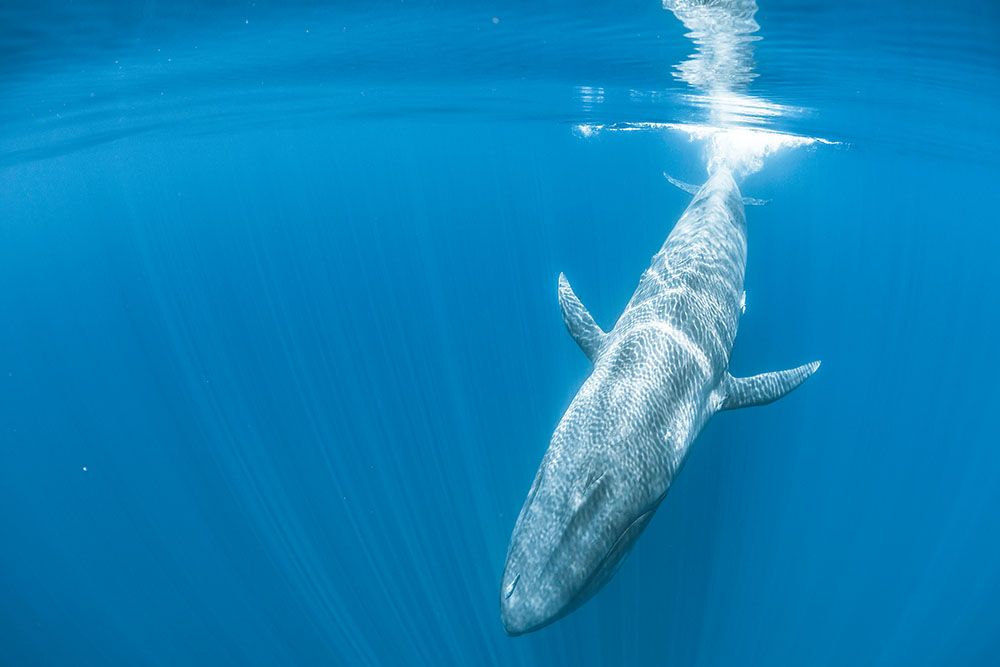
Major breakthrough in campaign to stop lethal shipping collisions with resident pygmy blue whales
The Mediterranean Shipping Company is rerouting its vessels around Sri Lanka to avoid collisions with blue whales after a concerted campaign by conservationists.
A population of pygmy blue whales – one of the four known species of blue whales – is resident off the southern tip of Sri Lanka but its habitat overlaps what is one of the busiest shipping lanes in the world which connects Southeast Asia and China with the Suez Channel. Traffic in the shipping lane has grown by more than 300 per cent in the past 20 years.
Researchers supported by the International Fund for Animal Welfare (IFAW), Great Whale Conservancy and OceanCare believe that moving the shipping lanes just 15 nautical miles would stop hundreds of often fatal collisions between oil tankers and vast container ships and the whales, which though described as pygmy, still grow to more than 20 metres in length.

‘MSC Mediterranean Shipping Company has taken a major step to help protect blue whales and other cetaceans living and feeding in the waters off the coast of Sri Lanka by modifying navigation guidance in line with the advice of scientists and other key actors in the maritime sector,’ said a spokesman for the company.
‘By ensuring these small changes, MSC is making a significant difference for these endangered whales. Whales often die as a result of collisions and this population is at risk. Ship strikes are both a conservation and a welfare problem, and even one whale death is one too many,’ Sharon Livermore, the director of marine conservation at IFAW, said.
It is hoped that the voluntary rerouting will encourage the Sri Lanka authorities to insist the International Maritime Organisation makes the change permanent which would reduce the risks of collisions with the whales by 95 per cent.
• Read our full report on the blue whales of Sri Lanka and the boom in tourists coming to swim with them and see more stunning photographs by Douglas David Seifert


